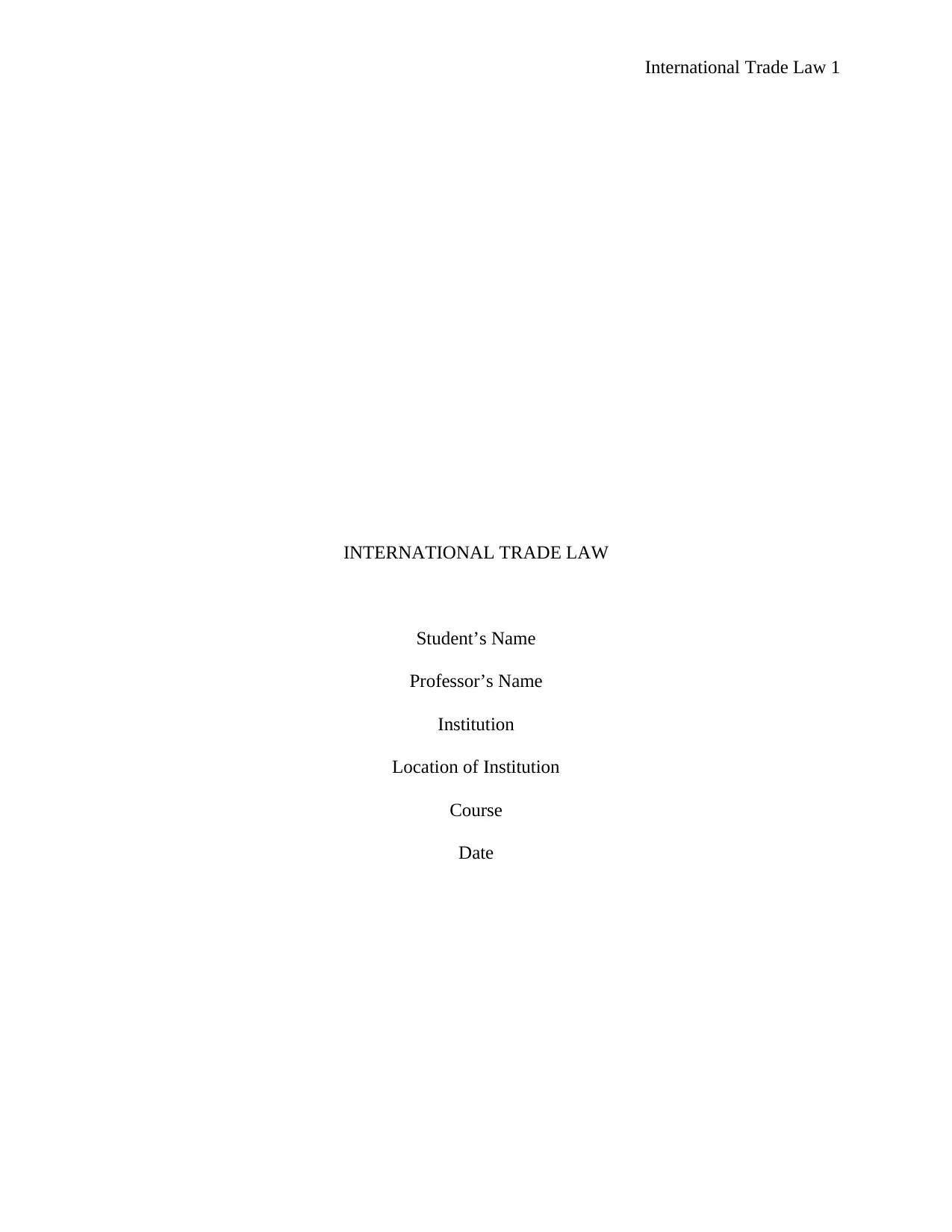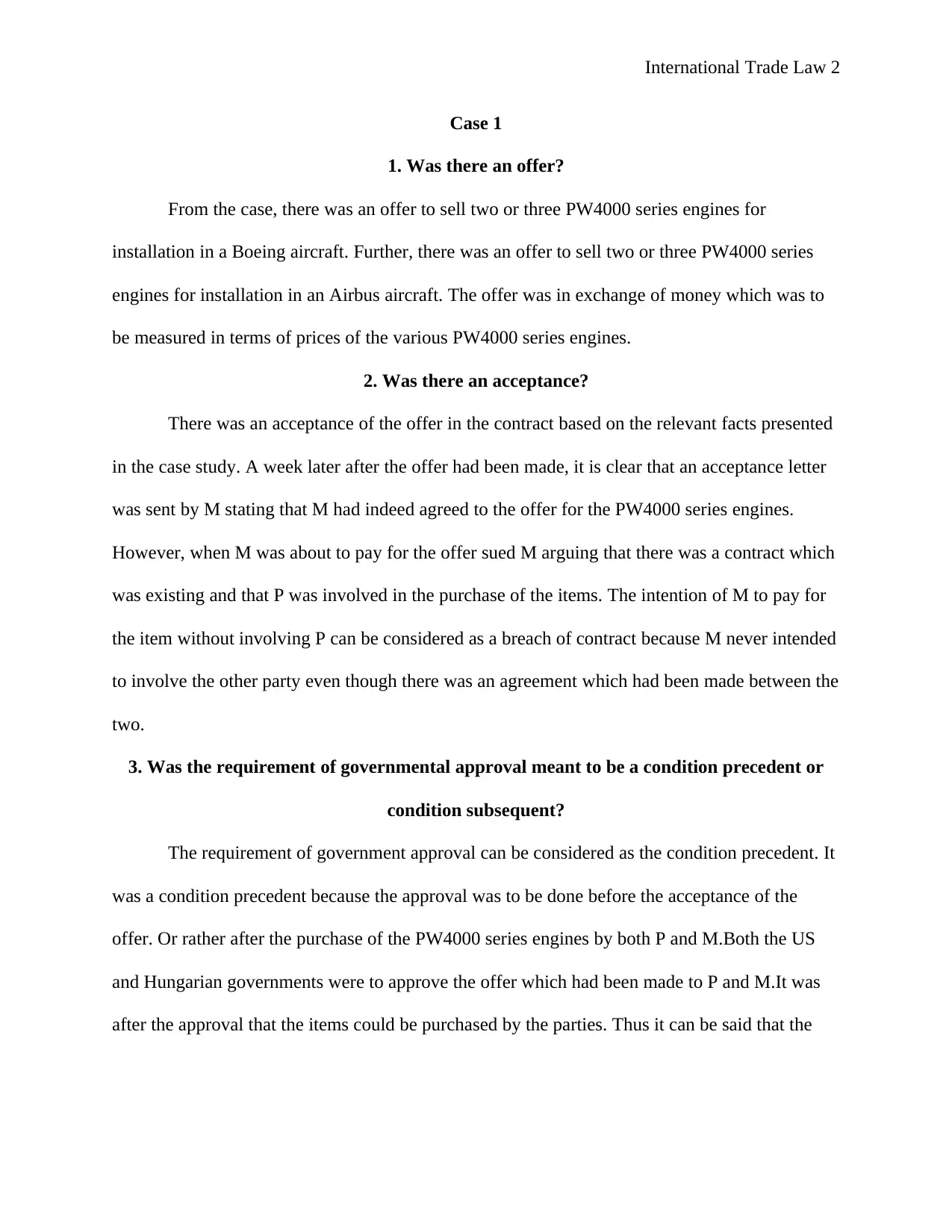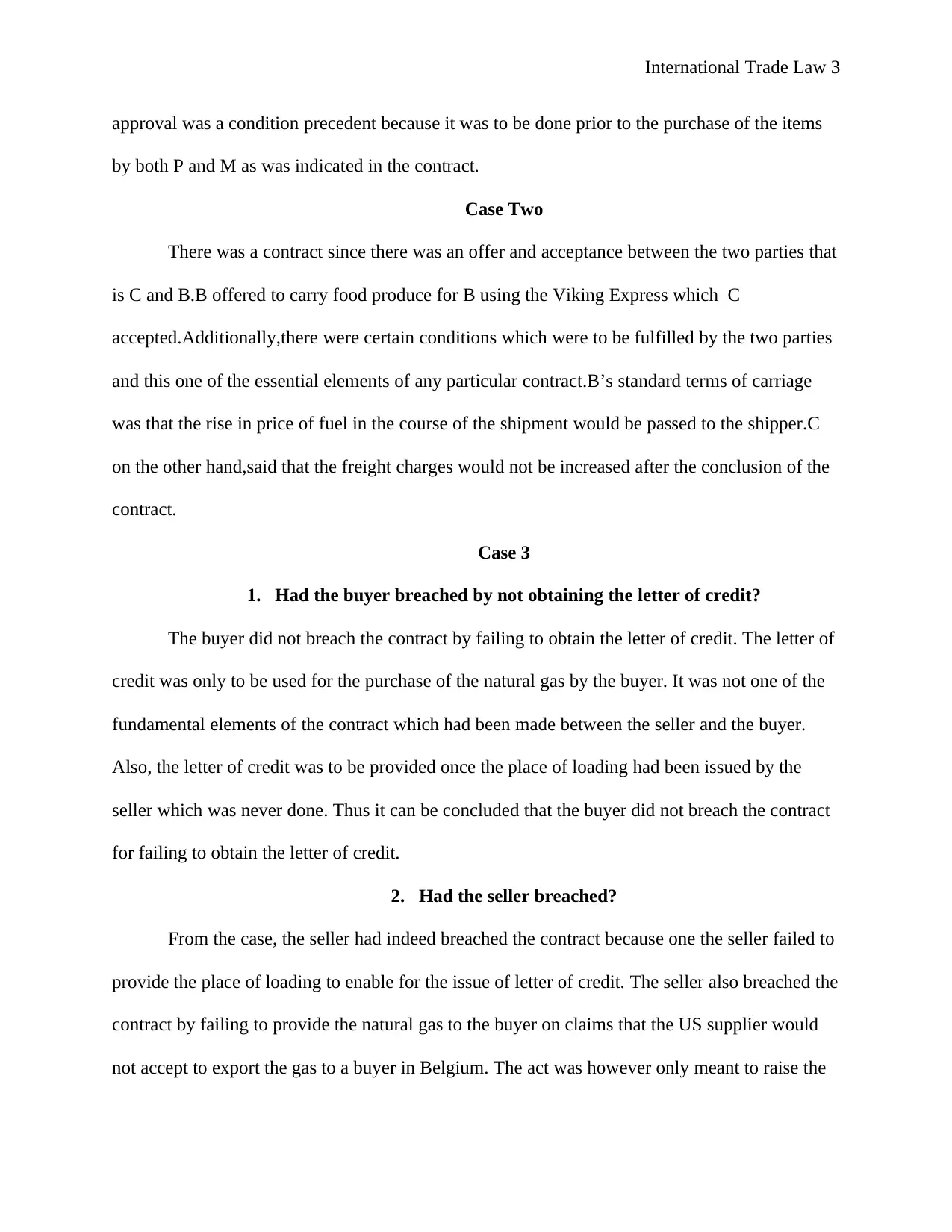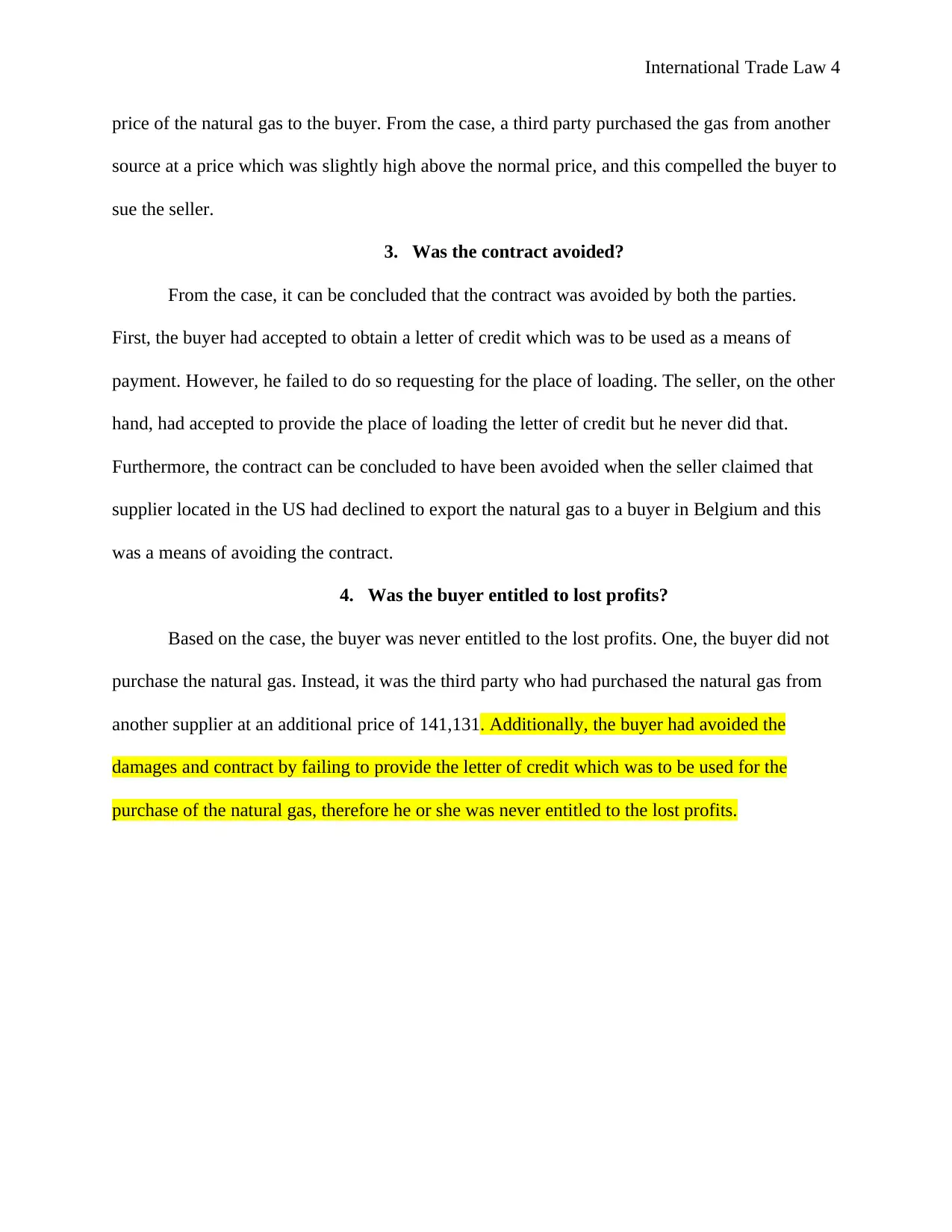In-Depth Case Study: Exploring Complexities in International Trade Law
VerifiedAdded on 2023/04/22
|4
|974
|212
Case Study
AI Summary
This case study delves into several international trade law scenarios, examining issues such as offer and acceptance, conditions precedent, and breach of contract. The first case explores whether an offer and acceptance occurred in a proposed engine sale, and whether governmental approval was a condition precedent or subsequent. The second case concerns a contract for the shipment of food produce, focusing on price increases and contractual terms. The third case analyzes a natural gas sale, addressing whether the buyer breached the contract by not obtaining a letter of credit, whether the seller breached, if the contract was avoided, and if the buyer was entitled to lost profits. The analysis provides detailed insights into the complexities of international trade agreements and the legal ramifications of each scenario. Desklib offers this and many other solved assignments for students.
1 out of 4








![[object Object]](/_next/static/media/star-bottom.7253800d.svg)